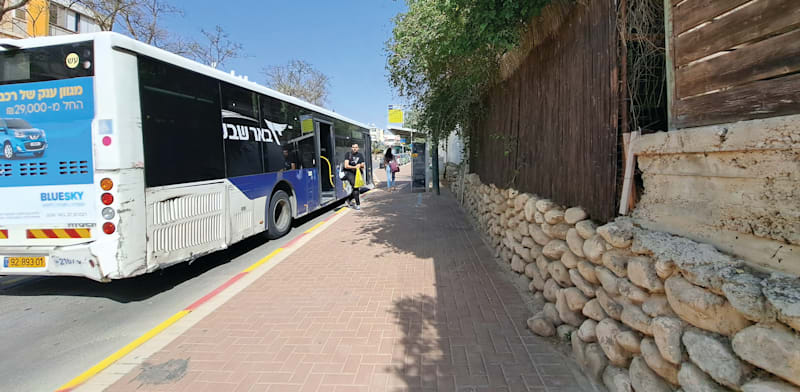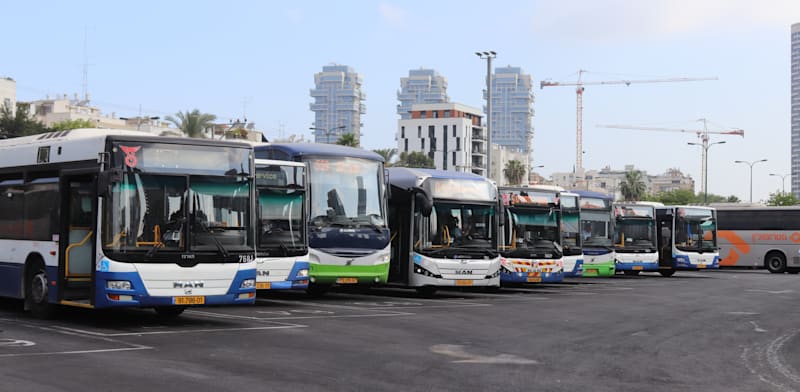At the end of April, the fare tariff for public transport in Israel changed. The fare for a single journey rose from NIS 6 to NIS 8, and the price of monthly passes rose accordingly. Together with the fare hike, the Ministry of Transport launched the second phase of the “Transport Justice” reform initiated by Minister of Transport Miri Regev, whereby, in addition to free travel from age 65, discounts were given to people living in neighborhoods in socio-economic groups 1-5 (out of ten) by the definition of the Central Bureau of Statistics. This was in addition to the discounts in the first stage in the reform to settlements in groups 1-5, to people aged under 26, and to demobilized soldiers.
Through these discounts, the Ministry of Transport managed to deal with political demands by the haredi parties, embodied in the coalition agreements, for discounts on public transport for married yeshiva students and for haredi settlements. Many Arab settlements also benefit from the reform.
Amid public criticism of the rise in fares for a service that remains sub-standard, the Ministry of Transport consistently claimed that 80% of Israel citizens came within the scope of the reform and could benefit from the discounted fares, with the result that for them travel on public transport would not become more costly.
This claim can be tested by means of the Consumer Price Index published by the Central Bureau of Statistics. The latest index reading, for May, went scarcely noticed in the midst of the war with Iran. It shows, however, that the rise in fares certainly had an impact, as the public transport item rose 9.8% that month.
This rise was exceptional, as only a few items rose by more than 3% in May: fresh fruit by 3.9%, and sweets and chocolate also by 3.9%. The general transport and communications category actually fell by 2.4%, but within that category, as mentioned, the rise in the public transport item was exceptionally high.
Service, not price
Nevertheless, although the price of public transport demonstrably rose, that is not enough to determine whether the fares reform was a negative or positive step. On the one hand, it has increased the cost of living for anyone dependent on public transport. On the other hand, government officials and transport experts claim that, contrary to basic economic logic, which would have it that a lower price brings higher demand, most of the public is not sensitive to price when it comes to public transport, but rather to service and reliability. In order to improve service and reliability, it is necessary to raise the price.
The Ministry of Finance has for years wanted to raise public transport fares, and it has now found an opportunity to do so. Journeys on public transport are hugely subsidized by the state, and the amount grows from year to year. It has jumped fourfold in the past decade, to some NIS 14 billion. At the same time, revenue from passengers has diminished over the years. In 2023, it averaged NIS 2.7 per journey, which compares with NIS 8 in 2004.
RELATED ARTICLES
The growing subsidy to some extent offset the erosion in revenue, but did not lead to additional investment in public transport in a way that would attract more people to use it. Before the fare hike to NIS 8, the state subsidy amounted to about 90% of the cost of a journey. The Ministry of Transport believed that if that proportion could be reduced, it would be possible to invest more in service.
In other OECD countries, fares are much higher, and the state subsidy is substantially lower than in Israel. In these countries, not only are bus services more frequent, but infrastructure has been built that gives priority to public transport, such as bus lanes and rail tracks.
For Israel, all these things are late in coming. The state does not spend more than NIS 400 million annually on public transport lanes, while the five-year plan for them is budgeted at NIS 6 billion.
The Ministry of Transport said in response, “The reform needs to be distinguished from the Consumer Price Index. The reform encourages a switch to using period tickets that give extensive and substantial discounts, rather than single journeys. The benefits are given to subscribers and not to public transport users in general. The effect of the benefits will be felt gradually, a more passengers adopt the periodic subscriptions.”
Published by Globes, Israel business news – en.globes.co.il – on July 2, 2025.
© Copyright of Globes Publisher Itonut (1983) Ltd., 2025.








